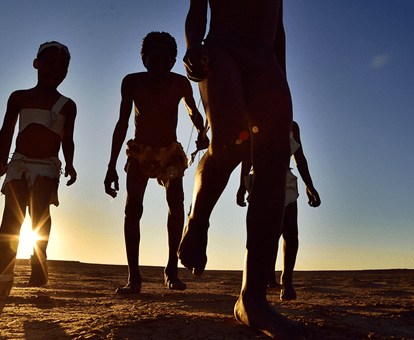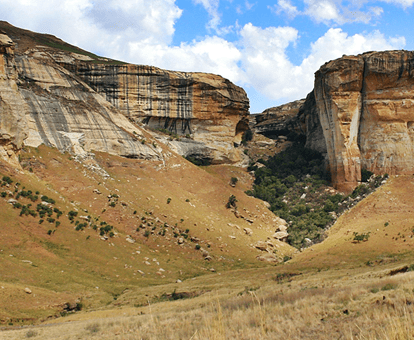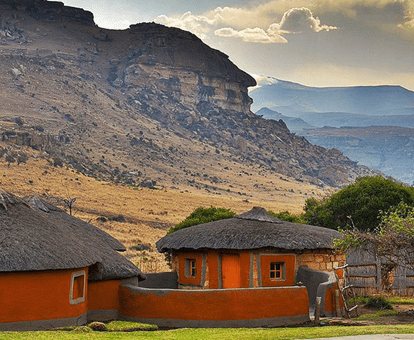By creating an account, I agree to the
Terms of service and Privacy policy
Choose your country and language:
Africa
Americas
Asia Pacific
Europe
AAs beautiful as the Free State is, it’s equally interesting and dynamic. It’s centred around traditional African cultures, as well as influences of the early European settlers. There’s so much to learn about this province’s history and its great diversity of people.
It’s unquestionable that Free State culture is a true melting pot of traditions. Locals have descended directly from several traditional Southern African groups as well as a long line of Dutch ancestors. This combination has evolved into the unique South African culture of the Free State that we know today.
Arguably the first group to lay claim to this region were the San (Bushmen). Their ancient drawings speak of the animals that shared their lives on the Free State plains including, most interestingly, hippos. There are dozens of examples of San rock art dotted around the province, rated as some of the country's most valued examples.
The Free State
TThe Basotho or South Sotho people arrived here in the late 1700s. Despite many battles through the decades, including with the European settlers, the Basotho survived and have a strong presence in the province today. When visiting the Free State, you’ll notice hundreds of colourful Basotho huts made of reeds, grass and mud around the province. For a more intimate experience, visit the Basotho Cultural Village at Qwaqwa and immerse yourself in Sotho traditions. Or visit the Catharina Brand Museum at Ladybrand and see the transition of this culture from past to present.
TThe 1800s saw the arrival of the European settlers, mostly Dutch-speaking farmers from the Cape, and later the British who undeniably had the biggest impact on the region's culture. Various buildings bear testament to these influences, including beautiful sandstone Edwardian and Victorian mansions throughout the province. The Boers, as the Afrikaans settlers became known, established themselves as a farming force in the area.
WWith this came a rich legacy of traditions including the making of boerekos (farm-style food) and mampoer (a home-brewed alcoholic drink with a serious kick), and traditional folk dancing and music.
Visitors can today enjoy these traditions at towns across the province and partake in warm, farm-style hospitality through the province's choice of ‘farm stay' experiences. Venture out and explore the self-drive tourism routes:
- (Battlefields, Friendly N6, Diamond and Wine, BBT Heritage, Maloti and Goldfields);
- The National Museum in Bloemfontein;
- The Basotho Cultural Village;
- The Golden Gate Highlands National Park (with San art sites);
- The Catharina Brand Museum at Ladybrand.
VVisitors should attend the various festivals held in the Free State that highlights the culture, spirit and energy of this incredible region. Philippolis Witblits Festival is held in June (a festival featuring traditional home-brewed alcoholic spirits); NAMPO Farm Show (agricultural show) takes place in Bothaville in May, and the Free State Food Fair and Macufe Mangaung African Cultural Festival in Bloemfontein is held in October.
What are you waiting for? The Free State has so much more to offer, so why not take a Sho’t Left and enjoy the beauty and adventure that lies in this province.
Explore the Free State, a province buried in rich history




